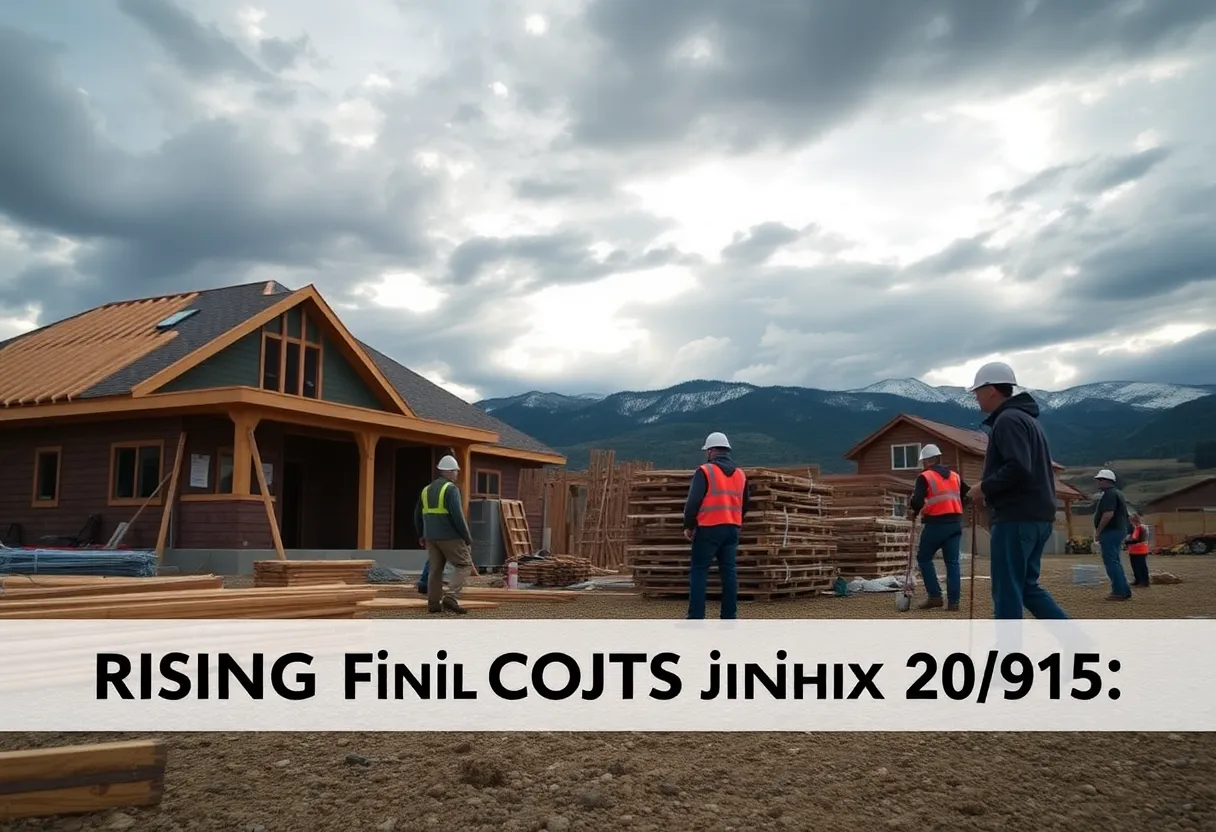News Summary
The Colorado construction industry is under strain due to escalating tariffs and material costs, impacting developer sentiment and profit margins. Recent reports indicate tariffs have surged significantly, leading to increased expenses for businesses and consumers alike. The construction sector, vital to the state’s economy, is warned of a slowdown in housing permits and challenges in affording housing, particularly in rural areas. Governor Polis has voiced concerns over the economic implications of rising tariffs, which are anticipated to reshape the industry landscape.
Denver
The Colorado construction sector is grappling with significant challenges as rising tariffs and material costs threaten developer sentiment and profit margins. According to a report by the Colorado Office of State Planning & Budget, the increased tariffs are contributing to higher expenses for both businesses and consumers in the state. The analysis, released on September 4, 2025, follows an executive order by Governor Jared Polis in July that called for a comprehensive study on the impact of tariffs on Colorado’s economy.
In a marked increase, tariffs have surged from an average of 3% in 2024 to 21% in 2025, representing a sevenfold escalation. This current level of tariffs is among the highest recorded in over a century, surpassing the last comparable period observed in 1910. The construction industry, along with agriculture, durable and nondurable goods, energy, health care, and technology sectors, is directly affected by these tariffs, collectively representing over 90% of Colorado’s international trade.
In 2024, the Colorado construction industry alone accounted for $33 billion, or 6% of the state’s gross domestic product (GDP), employing over 190,000 workers across more than 22,000 businesses. On Colorado’s Western Slope, construction activities contribute to 9% of the region’s GDP and 10% of its jobs.
The soaring costs of raw materials critical to construction, such as steel, aluminum, and copper, have surged by 20-40% compared to levels recorded in 2020. Furthermore, about 7% of materials utilized in residential construction are imported, resulting in project costs that are now estimated to be 15-25% higher than they were five years ago. Construction materials generally account for 35-50% of a home’s total construction costs, prompting significant concerns regarding decreased construction activity amid both weakened demand and elevated capital costs.
Impact on Housing Permits and Affordability
Initially, housing construction permits were anticipated to rise by 3.9% in 2025, but they have now been drastically revised to just 0.5%, with projections indicating caps near 2024 levels. The decline in construction activities, largely driven by escalating costs, further complicates the existing challenge of affordable housing in rural Colorado. The state’s housing deficit, which peaked at 140,000 units in 2019, has decreased to 106,000 in 2023; however, the limited construction capacity could hinder further improvement.
Government Response and Future Considerations
Governor Polis has expressed concerns that the rising tariffs are inflating consumer costs and negatively impacting the state’s economy, forcing families to make difficult financial choices. Additionally, a U.S. federal appeals court has recently confirmed that the executive branch may possess limited authority concerning many enforced tariffs; a decision regarding the future of these tariffs is anticipated by October 14, 2025.
Regions such as Eagle, Garfield, and Mesa counties, along with the Denver Metro Area, are projected to be particularly affected by these tariffs. The intersection of rising costs and diminished construction activity poses looming challenges for Colorado’s construction industry, which is integral to the state’s economic landscape and job market.
Deeper Dive: News & Info About This Topic
HERE Resources
Survey Reveals Challenges for Small Business Owners in Cleveland
Nevada Job Market Declines with Construction Job Losses
Challenges Facing Small Construction Firms Amid Labor Shortages
Cleveland Port Approves Redevelopment Bonds for Erieview Tower Hotel
Sherwin-Williams Suspends 401(k) Matching Contributions
Construction Industry Faces Challenges Amid Declining Activity
Construction Industry Faces Challenges with Tariff Volatility and AI
Trump Administration Considers Tariff Exclusions for Home Construction Supplies
Belpre City Schools Board Appoints Construction Manager
New York City’s Economic Indicators and Fed Meeting Impacting Real Estate Market
Additional Resources
- Vail Daily
- Google Search: construction tariffs
- Colorado Biz
- Wikipedia: Tariff
- Denver Post
- Encyclopedia Britannica: economics
Author: STAFF HERE CLEVELAND WRITER
The CLEVELAND STAFF WRITER represents the seasoned team at HERECleveland.com, your premier source for actionable local news and information in Cleveland, Cuyahoga County, and beyond, delivering "news you can use" with in-depth coverage of product reviews for personal and business needs, local business directories, politics, real estate trends, neighborhood insights, and state news impacting the region—backed by years of expert reporting and robust community input, including local press releases and business updates, while providing top reporting on high-profile events like the Rock and Roll Hall of Fame inductions, Cleveland International Film Festival, and holiday parades, alongside key organizations such as the Cleveland Clinic, Cleveland Orchestra, and Great Lakes Science Center, plus leading businesses in manufacturing and healthcare like Sherwin-Williams and University Hospitals, and as part of the broader HERE network including HEREDayton.com, offering comprehensive, credible insights into Ohio's vibrant landscape. HERE Cleveland HERE Dayton





